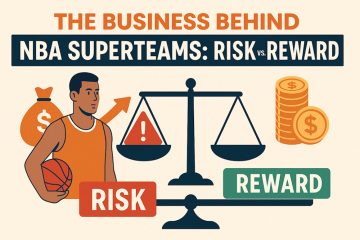Investing Lessons from the Masters: How Beginners Can Leverage the Wisdom of Experienced Investors

Between unfamiliar jargon, market fluctuations, and seemingly endless investment options, it’s easy to feel overwhelmed as a beginner. In almost every other pursuit, ‘copying someone else’s work’ is frowned upon, but there’s a lot you can learn from observing and monitoring the movements of experienced investors. There’s a huge wealth of knowledge waiting to be gleaned from experienced investors, and learning from their triumphs and tribulations can give your investment journey a significant head start.
Develop a Long-Term Perspective
One of the most crucial lessons from seasoned investors is the importance of patience. Successful investing is a marathon, not a sprint. Experienced investors understand that markets have natural cycles of ups and downs, and they crucially don’t panic sell during downturns. They focus on building a diversified portfolio for the long term, allowing their investments to weather market storms and grow steadily over time.
Embrace the Power of Diversification
One of the biggest mistakes beginner investors make is putting all their eggs in one basket, which seems like it will be fruitful. Experienced investors know the importance of diversification – spreading your investments across different asset classes like stocks, bonds, real estate, and commodities. This helps mitigate risk because a downturn in one sector won’t wipe out your entire portfolio.
Do Your Research (And Keep Doing It)
Just because someone is an experienced investor doesn’t mean they’re infallible. It’s crucial to conduct your own research before investing in basically anything. This involves understanding the company, industry, and overall market trends. Read financial reports, listen to expert analysis, and consider factors like a company’s growth potential, debt levels, and competitive landscape.
Not all investments are created equal, and each carries a different level of risk. Experienced investors understand their own risk tolerance and tailor their investment strategies accordingly. Are you comfortable with high-risk, high-reward opportunities, or do you prefer a more conservative approach with lower returns but greater stability? Understanding your risk tolerance will help you make informed decisions that align with your financial goals.
Learn from the Mistakes of Others
Experienced investors will readily admit that they’ve made mistakes along the way. The key is to learn from these missteps and avoid repeating them. Absorb investment podcasts and literature, listen to cautionary tales about emotional investing, chasing hot tips, or neglecting to do proper due diligence. Their experiences can be invaluable lessons that can save you from costly errors.
Leveraging the Knowledge: How to Put It into Action
Now that you’ve gained some valuable insights from the masters, how can you leverage this knowledge to build your own successful investment strategy? Here are a few tips:
- Follow Investment Gurus: Many experienced investors share their insights through blogs, social media channels, or even investment newsletters. Following these thought leaders can expose you to new investment ideas and different perspectives.
- Consider Copy Trading: Some online brokers offer copy trading features, which allow you to literally mirror the trades of experienced investors. This can be a great way to learn from their strategies and potentially benefit from their investment choices. Remember, a copy trade involves a different kind of risk – almost a sort of inherited risk you haven’t directly considered – so conduct some research before blindly following someone else’s trades.
- Invest in Index Funds: Index funds offer a low-cost, diversified way to gain exposure to a specific market sector or the entire stock market. Experienced investors often recommend index funds as a core holding for beginners, as they provide a way to participate in long-term market growth without the need for individual stock picking.
- Seek Professional Guidance: If you’re feeling overwhelmed or unsure about where to start, consider seeking guidance from a financial advisor. A qualified advisor can help you develop a personalized investment plan that aligns with your financial goals and risk tolerance.
By learning from experienced investors and taking advantage of the resources available, you can build a strong foundation for your investment journey. Remember, successful investing is a continuous learning process. Be patient, stay disciplined, and keep educating yourself to navigate the exciting world of investment with confidence.










